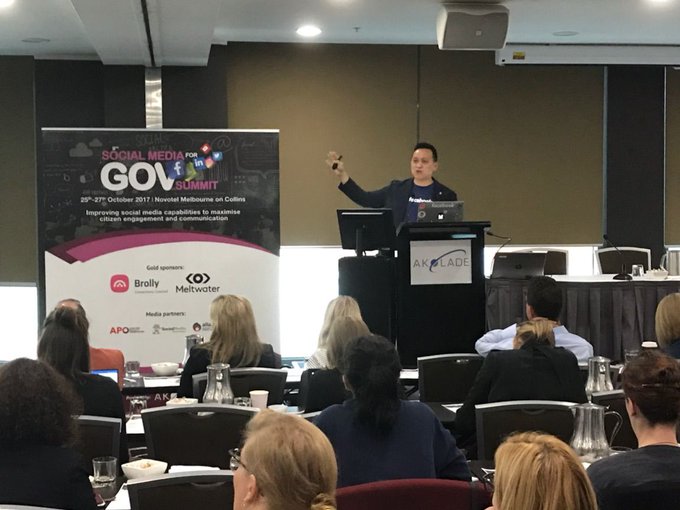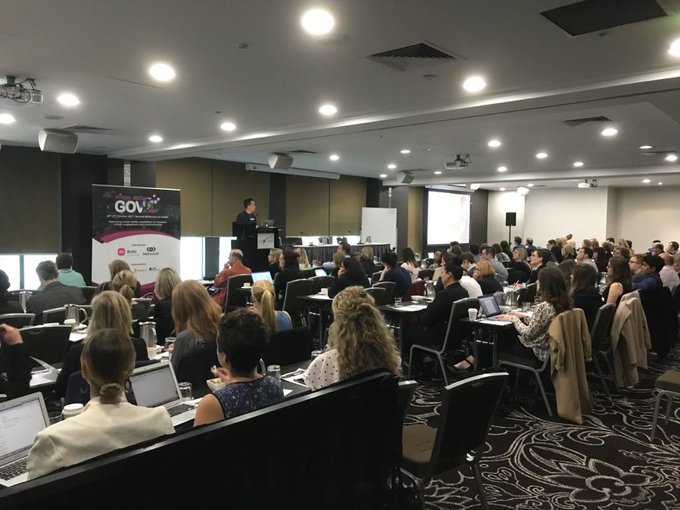You sit up quickly when Facebook tells you Australians spend on average just 1.4 seconds looking at a post on a mobile phone. How do you get a message across in such a short time?
It was just one of the many challenges and insights at this 9th Social Media in government conference by Akolade Australia in Melbourne.
How to harness social media video and put communities at the centre of policy remain top priorities for communications in the public sector.
Key takeaways from the experts
Having Facebook and Instagram in the room was clearly a draw-card. You don’t often get updates from the social media giant about Australian numbers, but Facebook’s APAC Government and Policy lead Roy Tan was there to deliver them:
- 12 Million Australians are checking Facebook every day.
- More than 90 percent of those check on Mobile
- They spend about 1 hour and 40 minutes a day on Facebook and check the platform about 14 times a day.
The advice from Facebook for government was clear: be authentic and use lots of video to do it. This, not surprisingly, is a challenge for many agencies. Video is expensive and requires technical skill. Many of the attendees talked about a shift to inhouse video production and low-cost video production as a way to get value for money.
Decentralise and federalise
A recurring theme from speakers such as Mark Bayly from Victoria Police and Susan Manniche from the Bureau of Meteorology was the need to decentralise and trust content creators across an agency. For example, the Bureau’s social media team has several hundred people (meteorologists or comms) trained and authorised to Tweet.
How to leverage content across a government agency was also the message in my own presentation. I appealed for agencies to have a policy and governance framework that frees up content creators or channel owners. Let communication teams know what they can and can’t do on a platform such as Facebook on behalf of the agency. Clear boundaries means better response times for customers.
What happens next?
Despite a decade of rapid growth in digital engagement, many government agencies are still grappling with the basics. This is a reflection of low risk appetite, and ultimately a desire to get the strategy right and ensure value for money. Another commonality was evident from questions from the conference floor time and time again: social media is worth the learning curve because social media can put the customer front and centre of communications.
Guest blog written by:
John Kerrison
John Kerrison was a broadcast journalist for 11 years who worked in Sydney, Adelaide and Canberra. He hosted Technology Behind Business for Sky News. He has a Masters in Organisational Communication from Charles Sturt University with a focus on new media and crisis communication. He currently works for the NSW Government in a strategic role, advising on social and digital media.
Guest blog written by:
John Kerrison









No comments :
Post a Comment